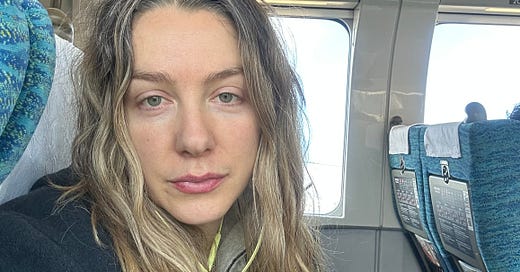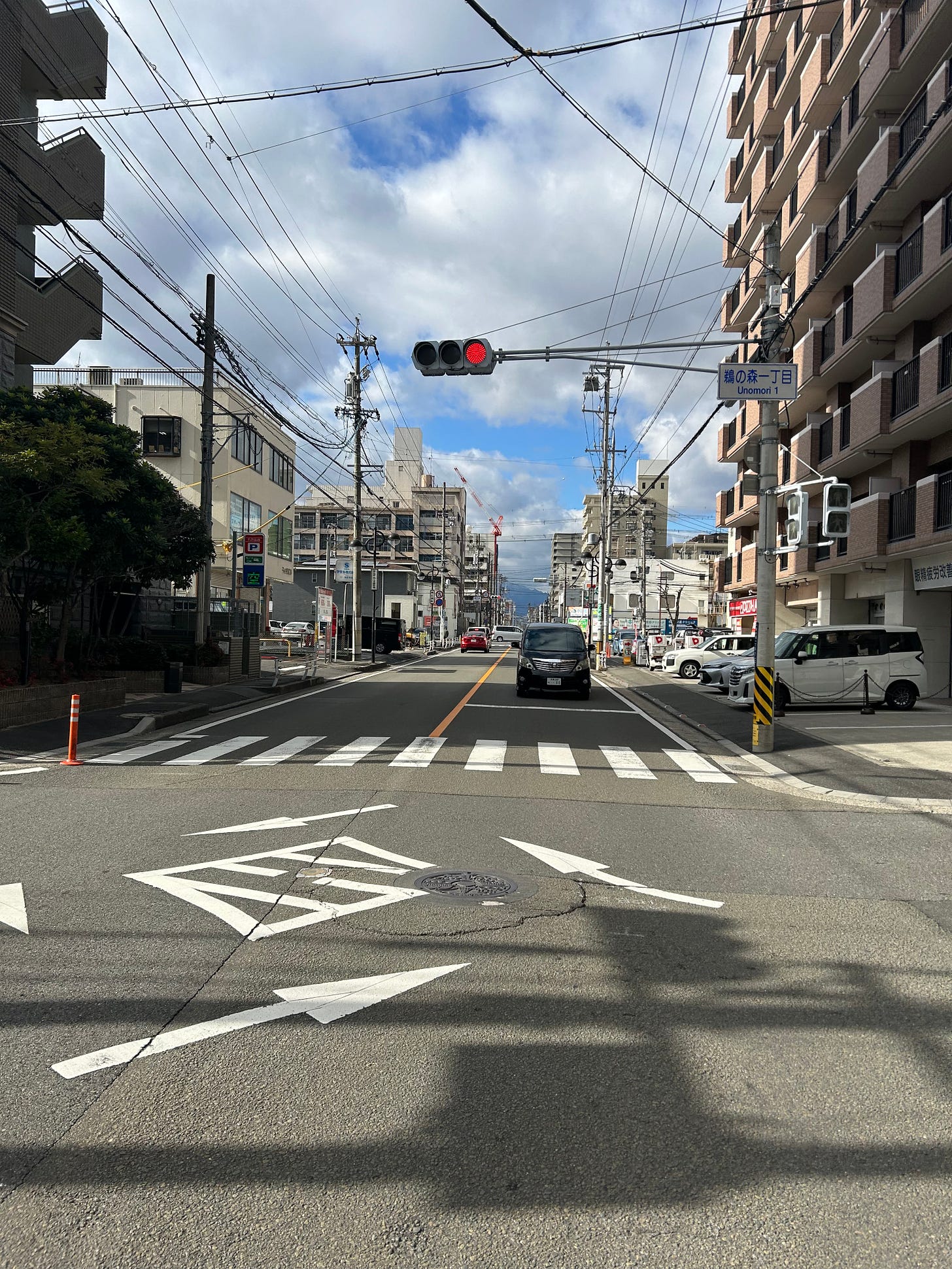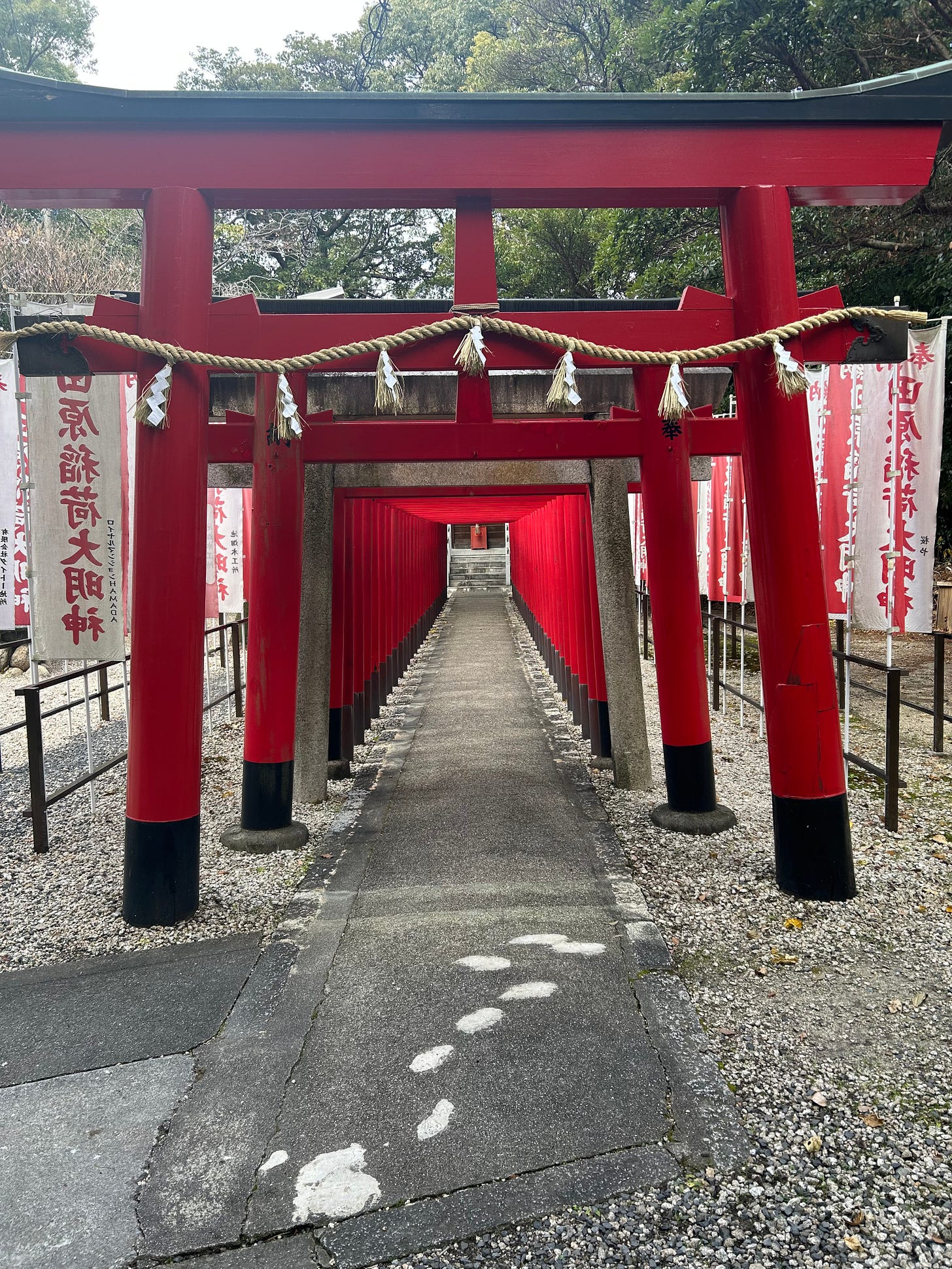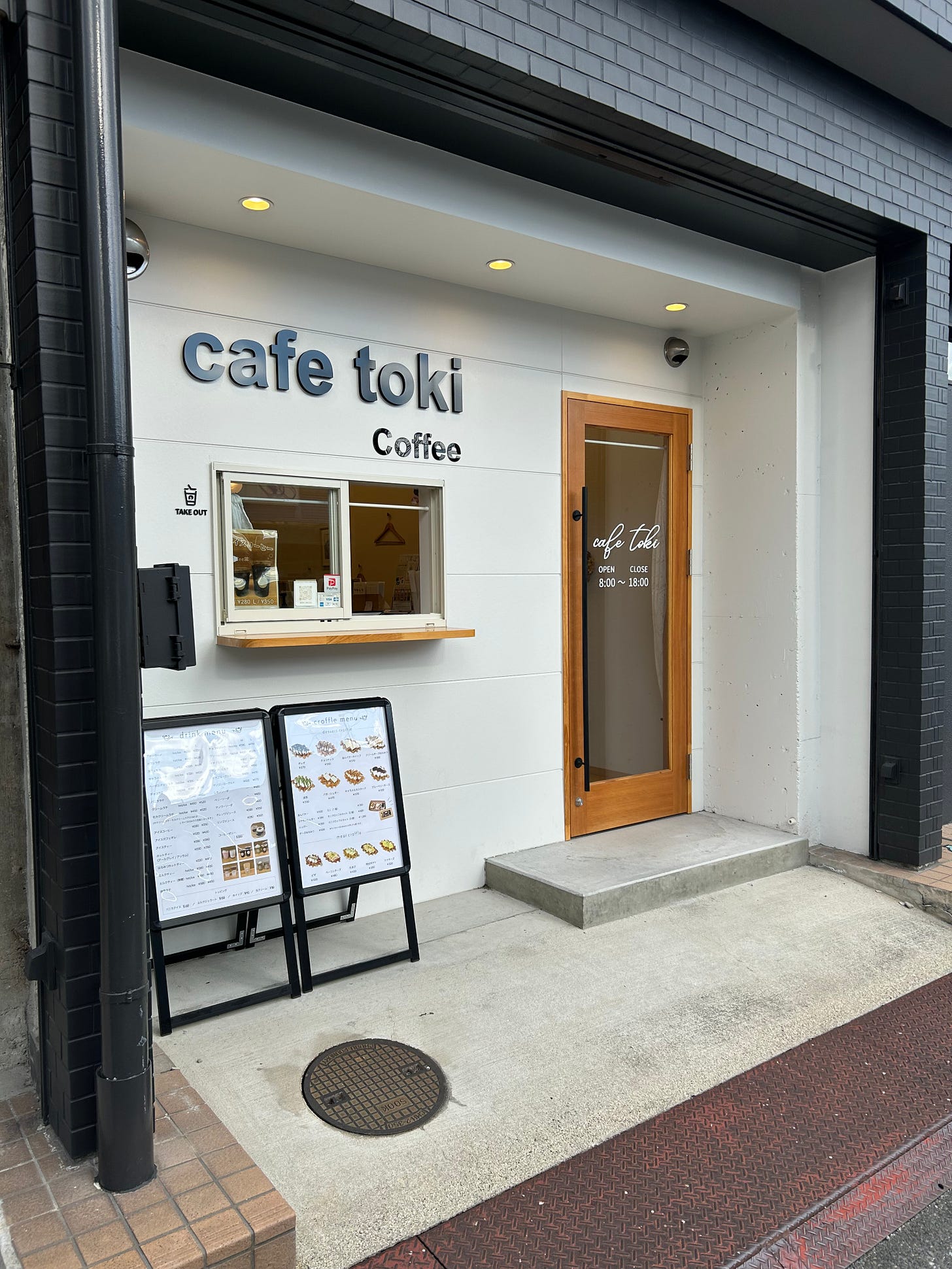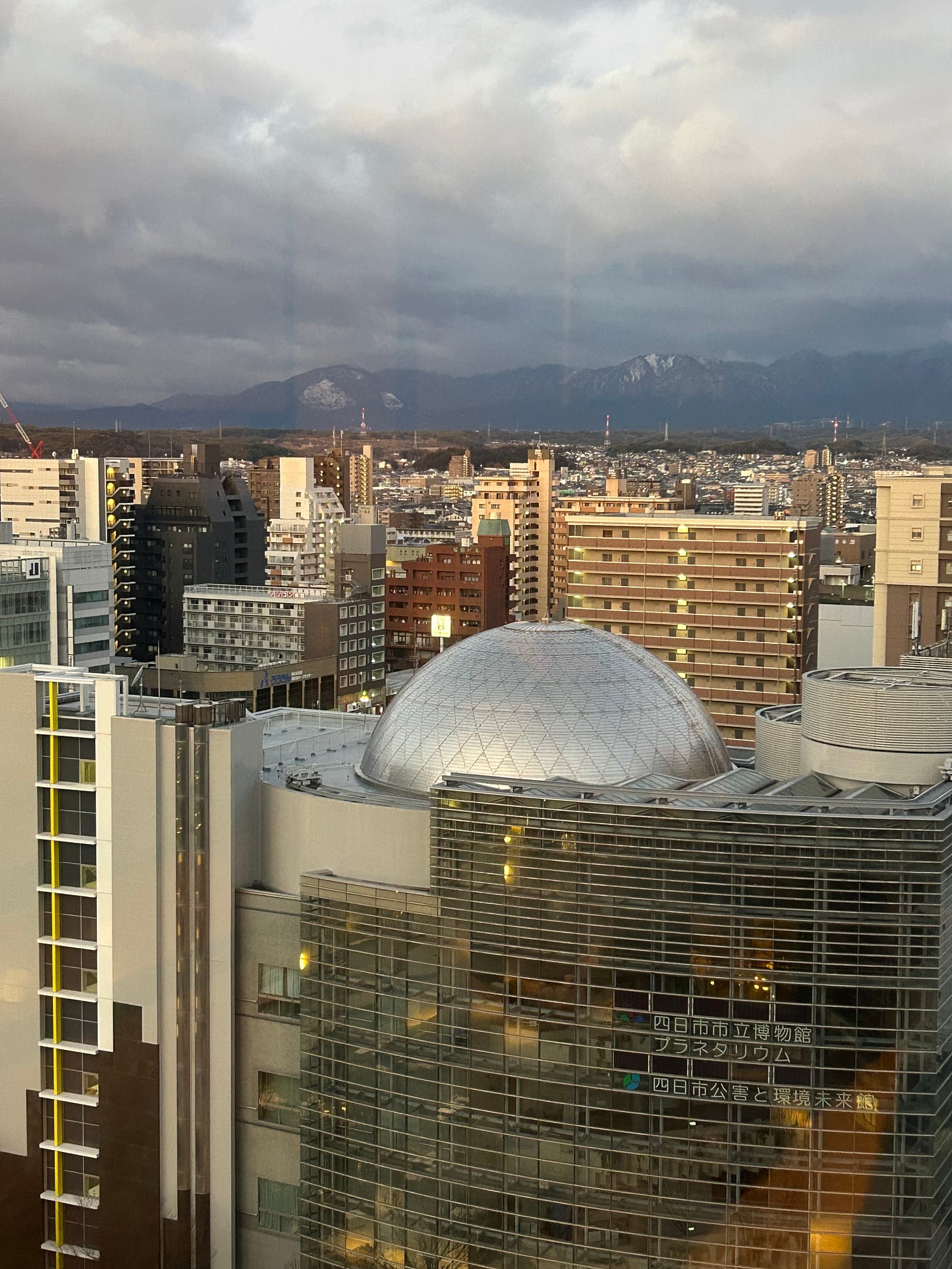When I got on the train to Yokkaichi City that first morning, I could feel the shift.
I had been told that Japan was experiencing a huge surge of tourism and that the streets would be crowded with foreigners, but when I landed in Nagoya and then got on the train that would take me to Yokkaichi, none were to be found. The train traveled along the coastline of Ise Bay, and the further down the peninsula we got, the cityscape quickly shifted to quaint neighborhoods with houses dispersed between rice fields.
When I arrived in Yokkaichi, nestled between the sea and a gorgeous mountain range with snow-dusted peaks, I immediately noticed how sweet the air smelled. Strange, I know. Something about the temperature and the combination of sea air and mountain air gave it a super subtle honey-like sweetness. Fresh, potent, sweet, nurturing air.
As I walked around the city for the first time, exploring the neighborhoods and walking through parks, my senses settled in and found a new reality.
Even though the streets were busy with people walking, shopping, and driving, they were quiet. Loud music was not blaring from the windows, conversations were not being yelled over one another, and no horns were being honked in the relatively silent electric cars. I felt like if I were to yell, people would hear me blocks away.
I ventured into a park in the center of the city, which contained a Shinto shrine, like most green spaces in this part of Japan. I found a young woman sitting on a park bench surrounded by pigeons. She glanced up, smiled at me shyly, and continued with her engagement. The pigeons crawled over her lap and cooed at her, asking for more treats, and she would reach out her hand every now and then and stroke one on the head. I could tell that this was not a random occurrence.
I sat on a bench about 40 feet away and started reading. When she left, they cried out, begging her not to go. But when she did, they became curious about me. I know everyone is recalling images of the Pigeon Lady in Home Alone right now, but something about the birds felt very safe. They were curious but not aggressive like they were used to sharing space with humans and didn’t need to make it a big deal. I gave them a bit of my sandwich bread, and a few casually gobbled it down and then flew off.
I walked past a construction site on my way back to the hotel. There, a man was taking a break from working. A large black Raven sat on the other side of the bench less than two feet from him. He glanced up every now and then to look at it as it walked around, and the Raven looked back at him with a similar passive attitude. There was no shoo’ing and no insistence that the space was his and his only.
There was only acceptance of coexistence.
Not far from the hotel, I stumbled upon this gorgeous little coffee and waffle shop where they served matcha lattes. I had yet to drink matcha in Japan, let alone in Ise where Matcha Freak’s matcha is from, so I was thrilled at the opportunity to try it. The woman working asked if I was traveling and thoughtfully made my treats. And when I saw the color of the matcha and drank it down, tasting the vibrancy that I feel designates Isecha (tea from Mie Prefecture) from other regions, I knew I was exactly where I was supposed to be.
I got back to the Hotel, which had every detail right to make a weary traveler feel right at home—and then some. My room was on the 14th floor, one of the tallest buildings in the area, with stunning views of the mountain range that watched over the city. While marveling at the scene before me, I had a cup of Isecha hojicha to accompany my matcha-covered waffle. I got into bed and fell into a delightful sleep for a few hours.
Knowing that the next day, Gen would pick me up and take me to the tea fields and production facility that supplies both of our livelihoods. Oh, what a day it would be.
——
These days in Japan are magical… beyond anything I could ever imagine.
I am finding that it takes a few days for my mind to grasp the details that need and should be shared.
Every second, I process information that defines my experience, especially because it affects so much of my life through business. Understanding the complex layers of Japanese life is crucial to me because I engage and communicate with people in Japan constantly.
To make my matcha freak life sustainable, long-lasting, and true, I must soak up as much as I can to nourish the bountiful relationship that makes it so rich.
So that is my lens. That is my experience. That is my utmost goal.
Until next time.

